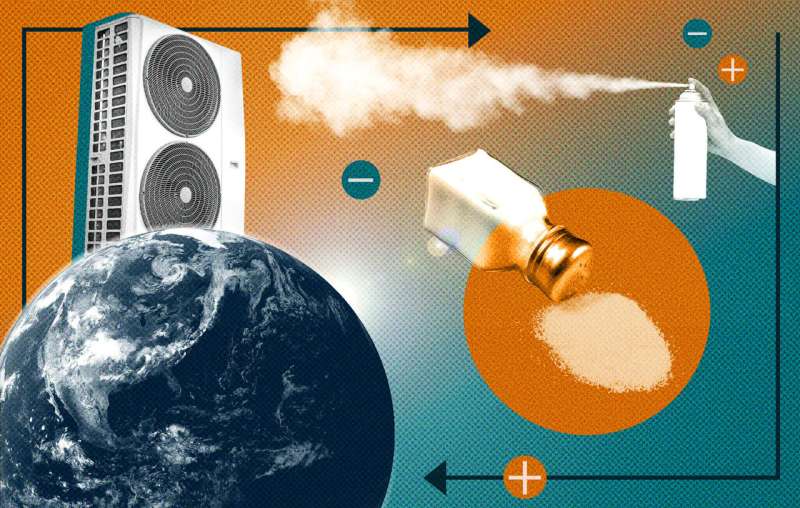Science Daily January 4, 2023
Developing high-efficiency cooling with safe, low–global warming potential refrigerants is a grand challenge for tackling climate change. Caloric effect–based cooling technologies, such as magneto- or electrocaloric refrigeration, are promising but often require large, applied fields for a relatively low coefficient of performance and adiabatic temperature change. Researchers at UC Berkeley used the ionocaloric effect and the accompanying thermodynamic cycle as a caloric-based, all–condensed-phase cooling technology. Theoretical and experimental results showed higher adiabatic temperature change and entropy change per unit mass and volume compared with other caloric effects under low applied field strengths. They demonstrated the viability of a practical system using an ionocaloric Stirling refrigeration cycle. Their experimental results showed a coefficient of performance of 30% relative to Carnot and a temperature lift as high as 25°C using a voltage strength of ~0.22 volts… read more. TECHNICAL ARTICLE

This collage depicts elements related to ionocaloric cooling… Credit: Jenny Nuss/Berkeley Lab